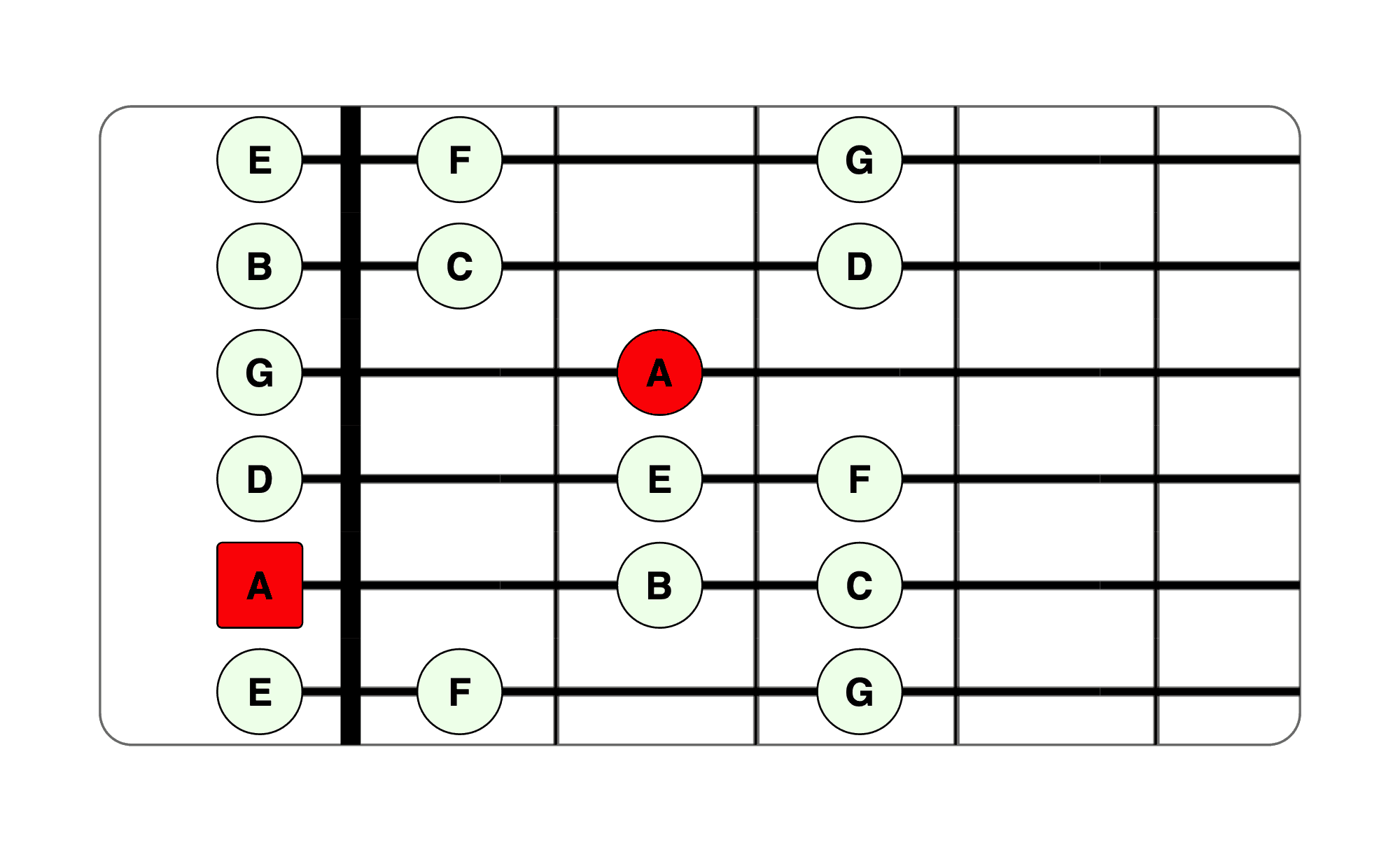
10 Essential Guitar Scales for Beginners Life In 12 Keys
A Minor Scale (across all guitar fretboard) How to play A Minor Scale. This pattern consists of A, B, C, D, E, F, and G - with the degrees of R, 2, b3, 4, 5, b6.

The (Natural) Minor Scale
Dark, solemn and mysterious, the minor scale is a solid choice to amp up the angst of a chord progression or melody. Once you've mastered the MS, you can use it to play some well-known songs-- or better yet, write your own! First Things First Scale Patterns How to Use It The Minor Scale in Action Related Scales Final Thoughts First Things First
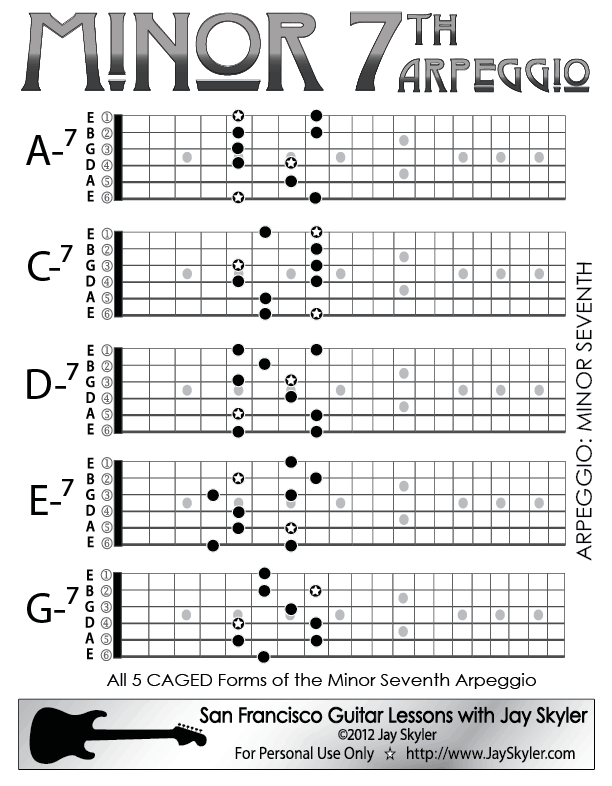
Minor 7th Chord Guitar Arpeggio Chart (Scale Based Patterns) by Jay Skyler
Minor scale guitar patterns happen to just be modes of major scale patterns, but they only become minor when we focus on the minor scale root. Here's how to.
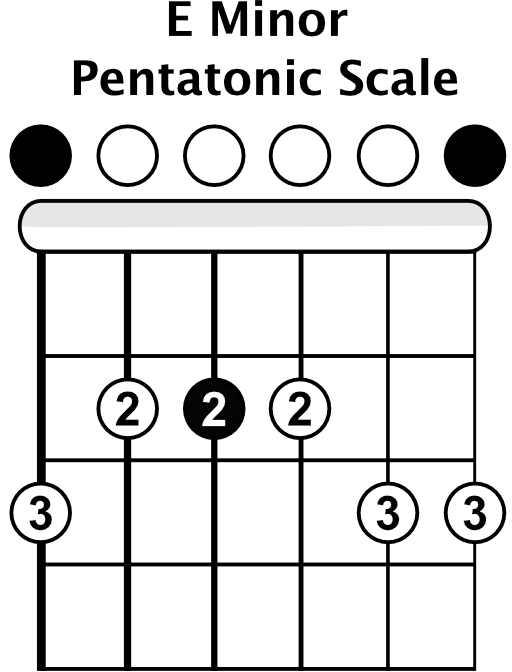
The Blues Guitar Scale Shape Blues Guitar Lessons
To play the A minor scale in open position, you will only need to play notes on the first three frets of your guitar. Use your index finger for notes that fall on the 1st fret, middle finger for notes on the 2nd fret, and ring finger for notes on the 3rd fret.
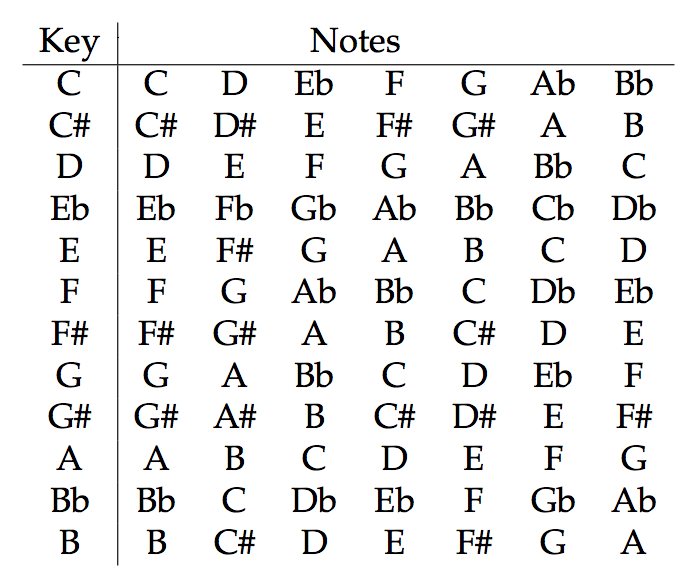
Guitar Scales The Minor Scale For Guitar
A Minor scale for guitar. The A Minor is a seven-note scale, also called Natural A Minor. Colored circles mark the tones in the diagram, with darker color highlighting the root notes. The root notes are always A tones. In the two-octave pattern, the first root note is on the 6th string, 5th fret. Full fretboard A Minor 2 octaves
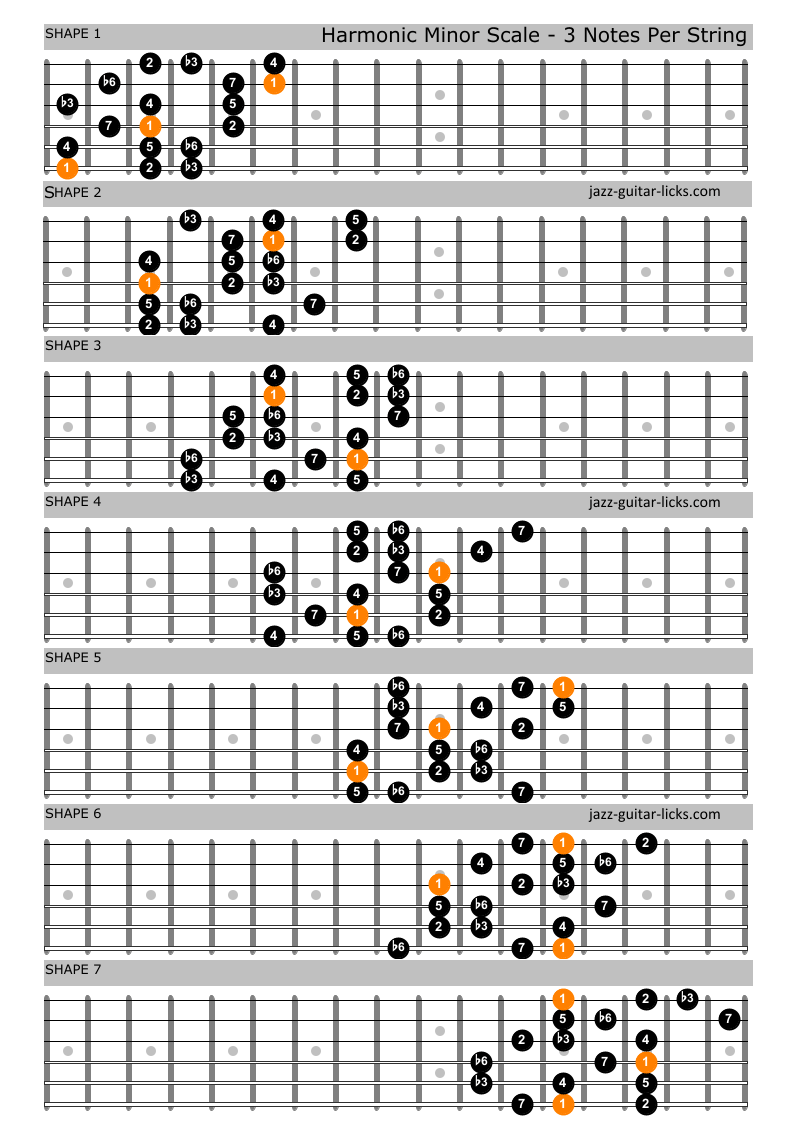
The Harmonic Minor Scale Guitar Diagrams and Theory
The minor scale is the second important scale for learning how to play lead guitar. Just like the major scale, it's a seven note scale. Before getting started with the minor scale, you'll want to make sure you have a really good understanding of the major scale. If you haven't already, go through the previous article on The Major Scale.
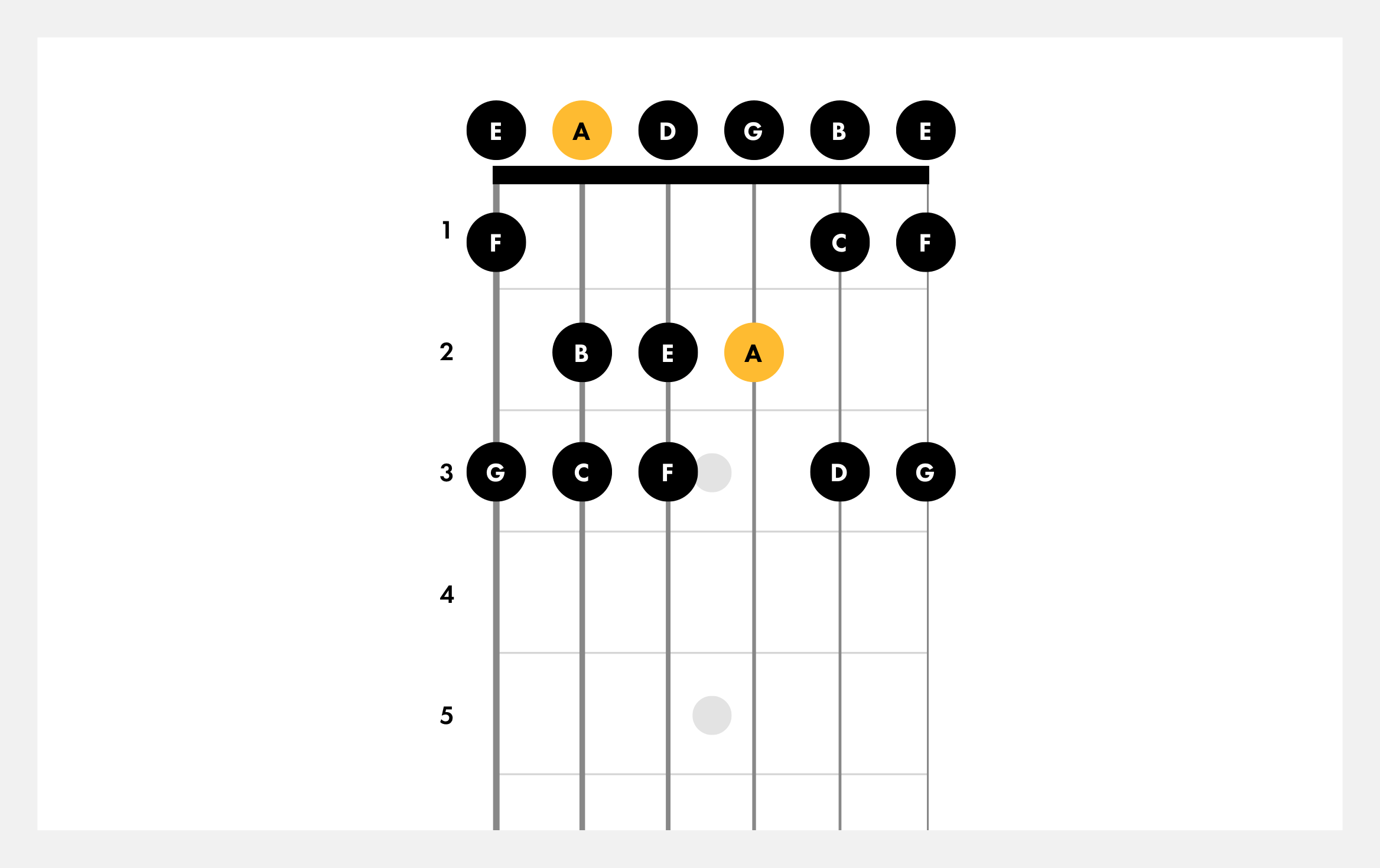
Learn How to Play the A Minor Scale on Guitar Fender
These CAGED scale patterns help you learn the minor scale as it relates to standard CAGED chords. For instance, Pattern 1 will correspond to a C chord. Pattern 1 E B G D A E 9 10 11 12 13 D E F A B C E F G B C D G A D E F play notes Pattern 2 E B G D A E 0 1 2 3 E F G B C D G A D E F A B C E F G play notes Pattern 3
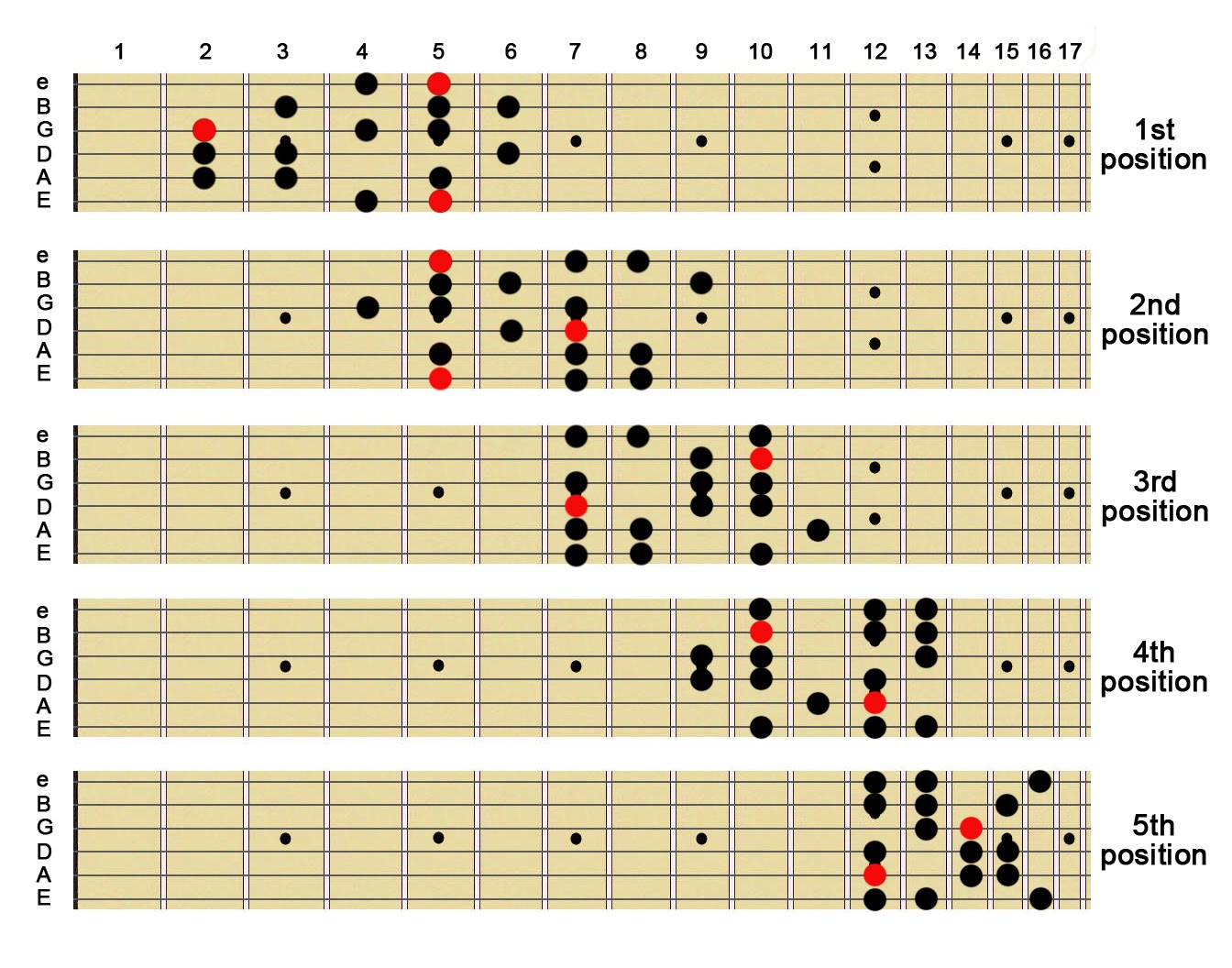
RizMum HARMONIC MINOR SCALE
One of the most fundamental scales to learn on guitar is the minor scale. Regardless of what genre you're playing, you need to know the minor scale when playing melodies or improvising in minor keys. Although the minor scale can be played in one position of the guitar, the same set of notes can be played on different areas of the fretboard.
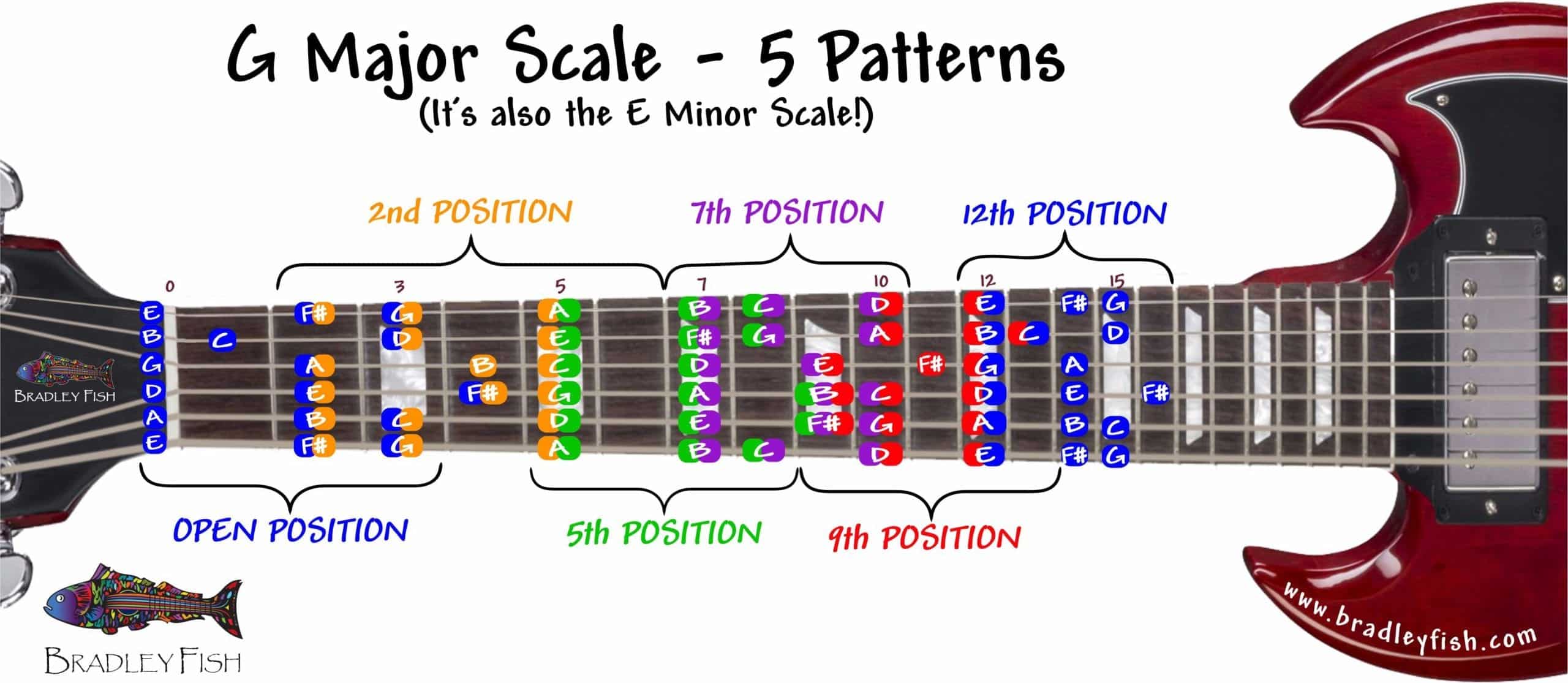
画像 e major scale guitar chords 183025E flat major scale guitar chords
Scale Structure A Minor is a minor scale and follows the minor scale structure of whole and half step intervals: W H W W H W W Scale Positions The diagrams below outline the 5 CAGED positions for the A Minor scale. Position 1 Position 2 Position 3 Position 4 Position 5 Chords in the Key of A Minor Relative and Parallel Scales
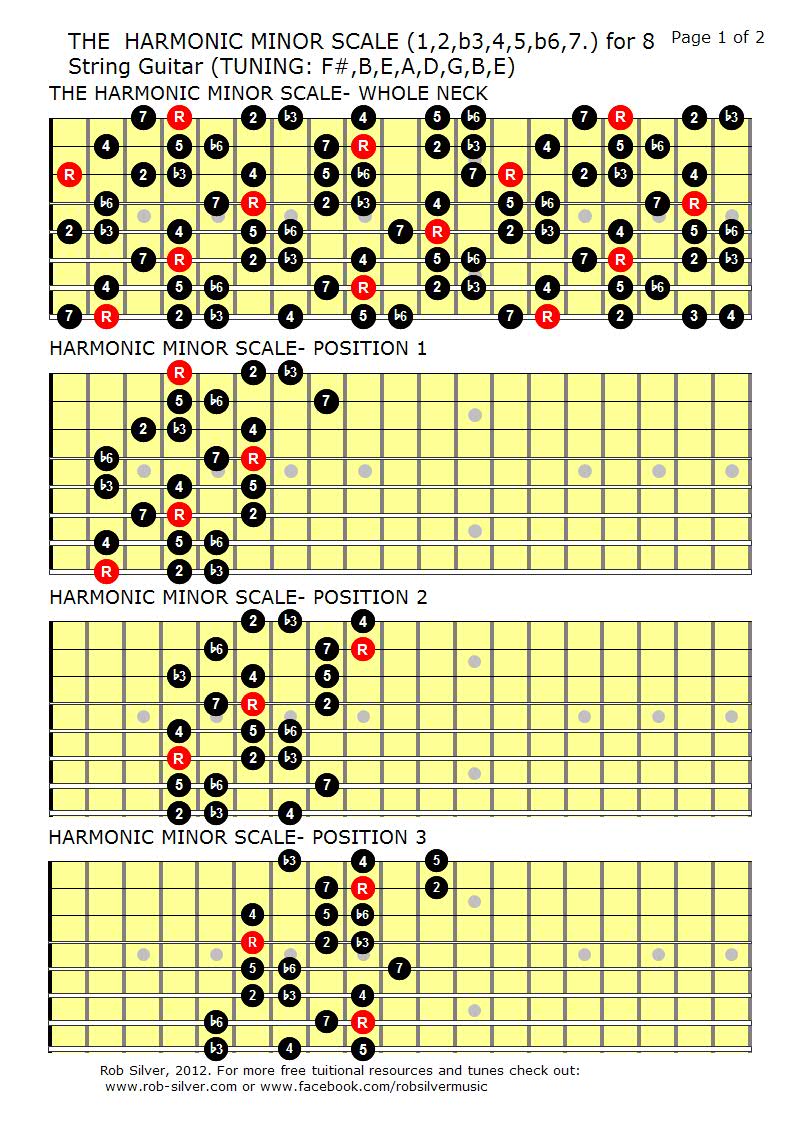
ROB SILVER THE HARMONIC MINOR SCALE MAPPED OUT FOR 8 STRING GUITAR
In this lead guitar lesson, we'll be taking a first look at the natural minor scale. Just like the major scale, the natural minor scale is one of the essenti.
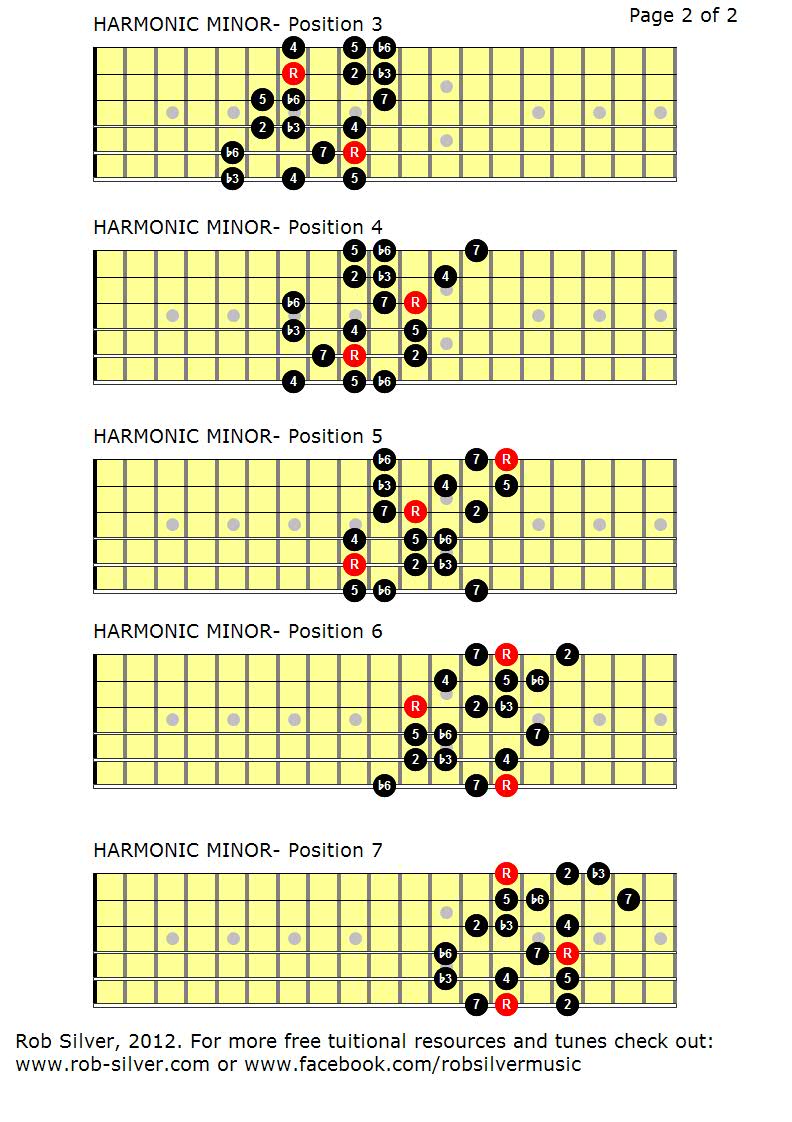
ROB SILVER The Harmonic Minor Scale
The CAGED system is a scale formula used in both major and minor scales. It's an acronym for the common chord shapes that are used throughout five regions of the fretboard. When you learn all five positions of the system, you'll be able to play the A minor scale — and all other minor scales, theoretically — across the entire fretboard.
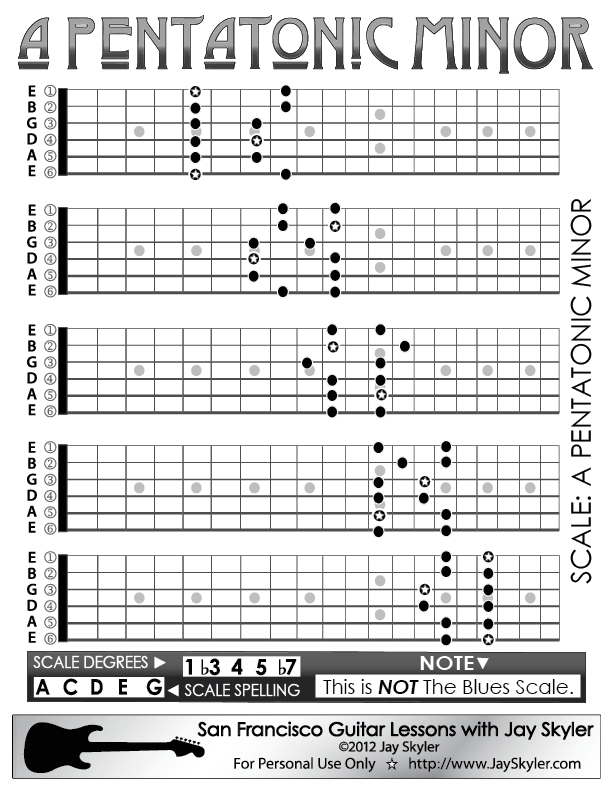
Pentatonic Minor Scale Guitar Patterns Chart, Key of A by Jay Skyler
Naturally, guitar players typically will play scales using more strings than just one. This creates several finger patterns to play minor scales (and other scales) that you can then move around to different keys. Naturally, we start by playing on just one string so you can better visualize the intervals involved in the minor scale formula.
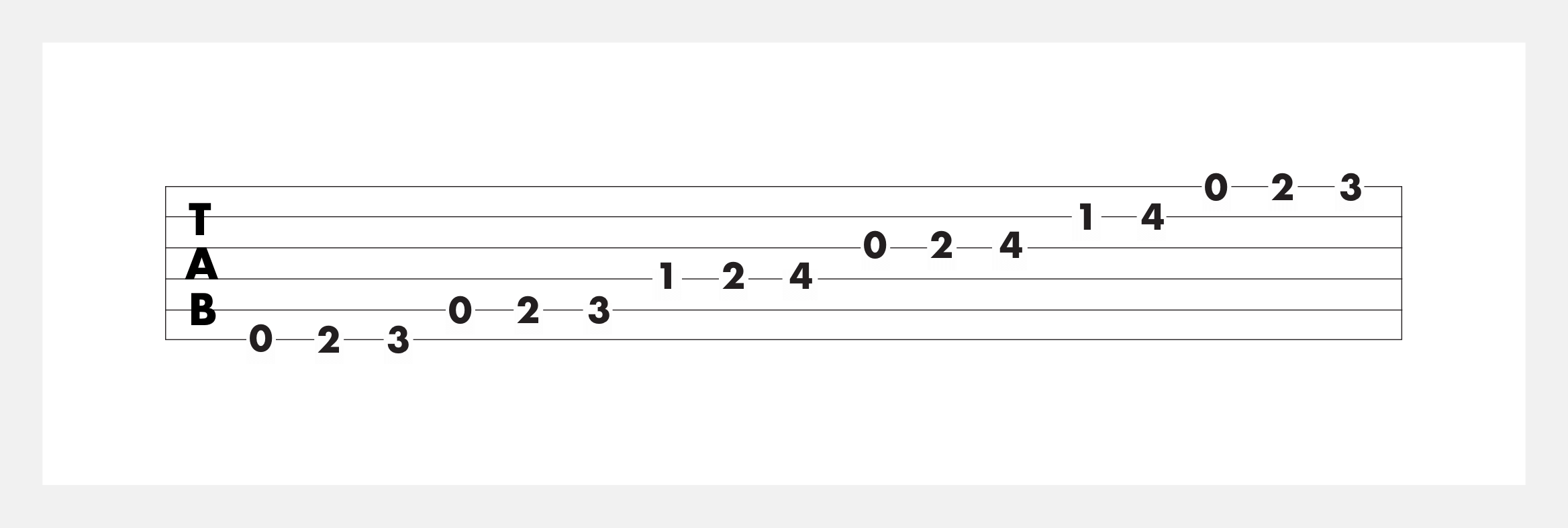
How to Play the Harmonic Minor Guitar Scales Fender Play
Perfect 5th Minor 6th Minor 7th This formula holds true for all natural minor scales, whether it's G minor, B minor, E minor etc. In comparing the minor scale to the major scale, the minor scale consists of flattened 3rd, 6th, and 7th intervals.

The Harmonic Minor Scale Anyone Can Play Guitar
The minor scale uses seven notes plus the octave for eight total notes. You can start on any root note and run a minor scale using its formula. So, if we started on the third fret of the fifth string — a C note — you can play the C minor scale.
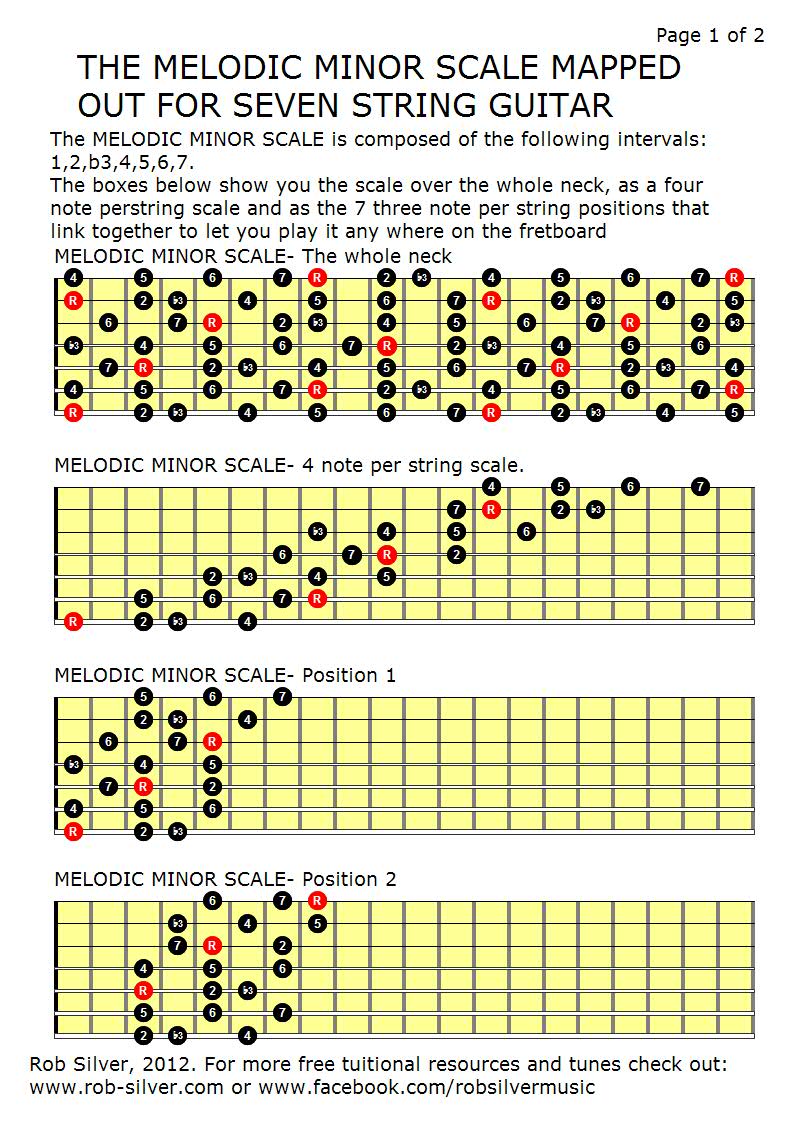
ROB SILVER THE MELODIC MINOR SCALE MAPPED OUT FOR SEVEN STRING GUITAR
The first way is to start with the major scale. We'll be using a C major scale because there are no sharps or flats that you need to worry about. To turn this C major scale into a C minor scale, we just have to take three notes and lower them by one half-step. The notes we lower are the 3rd, 6th, and 7th notes in the major scale.
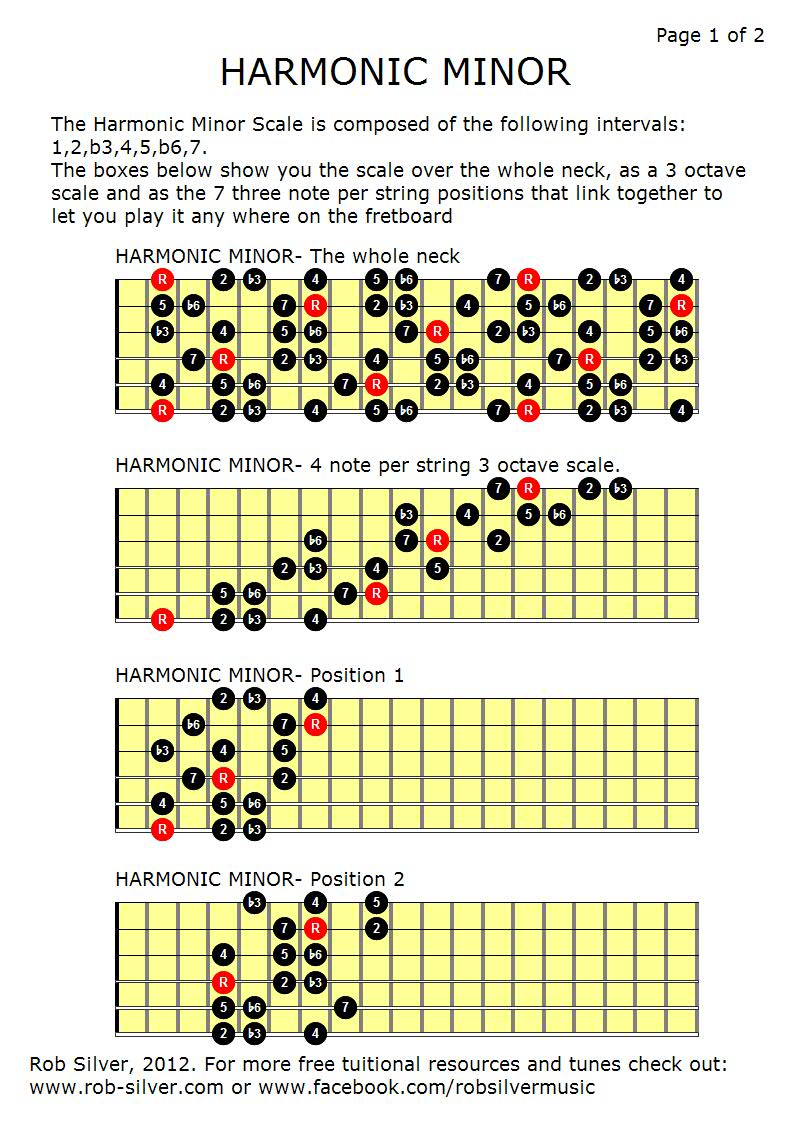
ROB SILVER The Harmonic Minor Scale
11 min read Learning the minor scale on guitar is essential for any budding musician because of its versatility & use across a vast number of music genres. If the g major scale (for example) is characterized by an upbeat & chipper sound, the minor scale is melancholic, sad, or emotional sound.